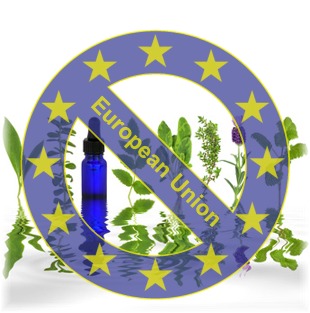Democrat August 2002 (Number 64)
Vitamins and Herbal Medicines under threat from the EU
Michael A Clark

The European Union is considering proposals for a Traditional Herbal Medicinal Directive that would change the way in which herbal products are allowed to be manufactured and sold in the Britain. If passed, it will have a tremendous impact on the 12 million citizens of Britain who currently enjoy the freedom to purchase food supplements, and the right to maintain their own good health.
Many of the 160 companies in the country will be seriously affected by the new Positive List legislation. One company, with an annual turnover of £2 million, anticipates that to stay on the market it will have to spend between £5 million and £6 million over three years on safety and toxicity work, which is beyond the ability of the company and totally unnecessary.
This Directive would also effect blends of herbs with vitamins and minerals which the Medicines Control Agency argues should be classified as medicines, if the herbal ingredients are at (high dose) therapeutic levels. We have never experienced people dying from these levels of vitamin and mineral supplements.
It has always been the privilege of citizens of Britain to enjoy the freedom of choice in purchasing herbs, vitamins and mineral products to supplement their diet, and, in some way, take responsibility for their own health and well being.
UK law already provides that food supplements and natural remedies are safe and appropriately labelled, which standards are accepted in many countries outside of the EU. We are in danger of losing the right to our freedom of choice.
Governments of the last 30 years have ignored this basic heritage of the freedom of our Common Law by bringing us under a sort of Napoleonic Law, which in turn is based on Roman Civil Law which has the approach of "the State knows best." Hence the Positive List.
Your support is therefore urgently required in the following:
Opposing the Traditional Herbal Medicinal Products Directive which would jeopardise many long-standing herbal remedies, and prohibit newly explored herbal products under the ruling that a product would have been on the market for 30 years (including 15 years in "Europe").
Opposing the proposed amendments to the Medicines Directive which intends to reclassify food supplements as medicines, within the regulatory regime of pharmaceutical drugs, thereby jeopardising their continued availability in Britain.
Opposing the introduction into UK law of the Food Supplements Directive which would lead to the disappearance of many vitamins, minerals and nutrients currently available as food supplements. The Directive may only allow much lower levels of potency leading to the loss of a substantial number of safe and effective higher dose products.
These Directives are Euro-Centric and seem to have no respect for the traditional role of herbs and supplements currently enjoyed by individual European countries. The Directive has no power in Britain until it is translated into our own national law -- a process that is likely to take two or three years once accepted. This provides us with an immediate opportunity to show how strongly we feel about our rights, and to make our voices heard.
In the United States, the sheer strength of public opinion stopped a similar attempt by the Food and Drug Administration to make vitamin supplements subject to the same laws as drugs.